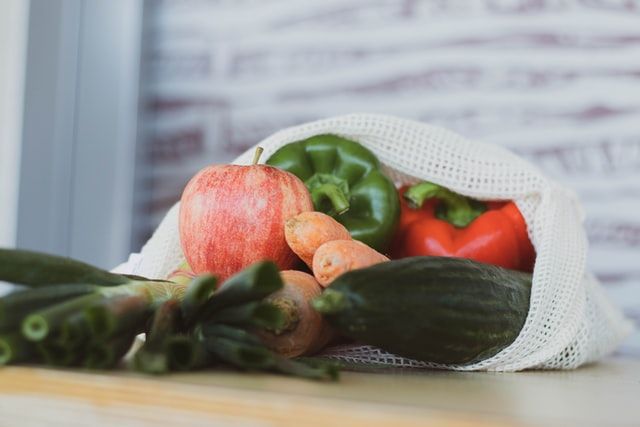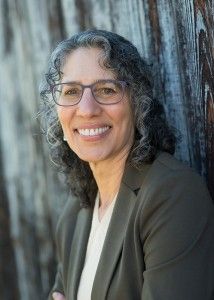
Many of us recycle and appreciate the sentiment of sustainability. We may even drive hybrid or electric vehicles and invest in green energy stocks. Nevertheless, it's hard to shake the feeling and objective reality that what we're doing isn't enough. On top of that as the health of the planet degrades so too does the general health of its human population.
To celebrate Earth Day 2021, I've asked conservationist and health educator Kathy Pollard, MS (who I met at the 2019 P-POD medical conference) to answer a few questions and help you identify one step you can take today and every day moving forward to reduce your impact on the planet and improve your individual health.
My parents were not outdoorsy people. We rarely did anything in nature, but when I went away to college in San Diego, I was absolutely struck by the beauty of meandering the hills above the Pacific Ocean. It was there that I fell in love with nature. Wondering the hilly trails, I saw for the first time vast land and oceanscapes, I smelled sage and Torrey pines and felt the rugged texture of bark, and heard the sound of waves and water, and I looked up beyond the canopy of towering trees. For humans to endanger such majesty seemed incomprehensible.
I would say that the three pillars of veganism: health, environment, and compassion hit me altogether after reading John Robbins’ Diet for a New Planet in the late ‘80s. It unmasked the profound impact of our food choices on our world, both personally and globally, and right then clarified the profound responsibility that each of us have to eat well and avoid animal foods.
Any one of those pillars is reason enough to live a plant-based life: to avoid suffering and mortality from the many chronic diseases that are promoted by animal foods, the degradation of land, forests and water from wasteful large animal operations, and the suffering that none of us wants to witness of countless animals confined and raised to be milked and slaughtered.
If we needed to practice such horrific acts to survive, there may be some justification for it all, but in fact, eating animals makes us sick, desecrates our land and water, and inflicts suffering upon others. We should be ashamed.
Awakening. More and more people recognize that they have control over their health and that their choices matter to the world beyond their own so adopt a plant-based diet. This isn’t easy because we live in an environment that supports cheap, unhealthy food with the addictive effects of concentrated sugar, fat, and salt. It takes time to get those drug-like substances out of your system--to withdraw. Add all the social pressures against changing lifestyle behaviors and the marketing and political powers of the animal food industry, and you can see why people don’t do it. But as a society we are at a point of reckoning to sustain our planet as well as our health. These give me hope for change.
As I mentioned, changing food habits is hard. Even when people want to adopt a healthier lifestyle they often need a roadmap to show them the way, and that is why we created the Sustainable Diet program, an online program with step-by-step changes towards a whole food plant-based diet for health.
It’s so important to address the epidemic of disease in America that we’ve decided to make it free and accessible to anyone interested.
Eating this way is the only known treatment that can reverse chronic disease, including cardiovascular disease, diabetes, some cancers, asthma, arthritis, and more. Food does that.
I am asked this a lot and would say there is no one way to start, but I often suggest swapping out the dairy in your diet first. There is now a dizzying array of milk alternatives that you can try as well as cheeses made of nuts that are absolutely delicious. Try them and experiment until you find the ones you love. But watch out for the added oil in animal product free cheeses. Oil is in most of our processed foods, and that brings me to another change to start with: get rid of the oil in your life. Read labels and avoid it. There is nothing healthy about oils, even olive oil. All oils oxidize quickly which can produce cancer-causing byproducts, and oil impairs endothelial function. Olive oil may have some trace vitamins, but those are easily taken in from green and colorful vegetables, sunflower seeds, whole wheat and other foods.
I hope this post has given you food for thought and that you feel empowered to make substantive changes to better align your beliefs and actions. As Kathy mentioned, it can be challenging to navigate social interacts that revolve around food, but the good news is that most restaurants now offer relatively healthy and always delicious vegan options. And the marginalization of vegans is deminishing. Those of us who've adopted a plant-based diet for any of the reasons mentioned above can and should be proud and supportive of others who are making strides to live a healthier and more environmentally sustainable lifestyle. There was a time when guests at my husband and my dinner table would turn up their noses and ask, "Is this vegan?" Now they grab a plate and enthusiastically say, "What's for dinner!?"
Related: Pathak N. and Pollard, K. "Lifestyle medicine prescriptions for personal and planetary health." The Journal of Climate Change and Health; Volume 4, October 2021, 100077
 Since becoming one of the first graduates of Dr. T. Colin Campbell’s eCornell certification course in plant-based nutrition in 2009, Kathy has wanted nothing more than to educate others about this life-changing message and the research indicating the powerful health benefits of eating whole plant foods.
Since becoming one of the first graduates of Dr. T. Colin Campbell’s eCornell certification course in plant-based nutrition in 2009, Kathy has wanted nothing more than to educate others about this life-changing message and the research indicating the powerful health benefits of eating whole plant foods.
Kathy is Research Projects Manager at the American College of Lifestyle Medicine (ACLM) and the administrator of the ACLM's Global Sustainability Committee. She is also the lead program mentor and co-founder of Sustainable Diet, which offers online courses and in-person retreats to help people switch from the standard American diet to a plant-based one. She holds a Masters degree in applied clinical nutrition through New York Chiropractic College and a Bachelor of Science in Mass Communications from the University of California, Berkeley. She has also completed training in Motivational Interviewing.
She spent six years as an online instructor for the renowned T. Colin Campbell Center for Nutrition Studies, offering the plant-based nutrition program through eCornell and is presently adjunct faculty with the University of New England online graduate program in applied nutrition. Kathy serves on the Board of Directors for the Plant-Based Prevention of Disease Conference (P-POD) and is currently writing her first book, Eating Does It: Healing Ourselves and Our Planet with Food, with Stacey Verardo, PhD. Professor of Earth and Atmospheric Geology at George Mason University on the interconnection between food and climate change.
For more information about human physiology and the scientific method and why more and more physicians are advocating plant-based diets, visit the Physicians Committee for Responsible Medicine's website.
Feature Image by Benjamin Brunner on Unsplash
Cristen Iris
CI Communication Strategies
2021
